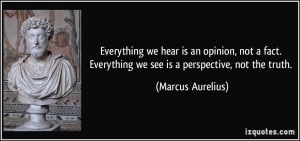Do you have nonsense fatigue?
I’m starting to see some backlash on the volume of white noise on LinkedIn and other platforms. One writer Cory Galbraith sent out a post which resonated. He has even taken a break from his own writing.
He suggests that people write for a number of reasons – to sell a product, enhance a reputation or ego, and some even to be genuinely helpful. What bothers me, is the level of information which is either inaccurate, wrong or an opinion shared as a truth.
I’m sure it is the same for all sectors, but nowhere is it as prevalent as job search and recruitment. The search term “How to create a successful resume” produces 72.2 million resources in 0.61 of a Google second.
We all have opinions on the way people do these things and many are more than willing to share them, regardless of their knowledge level or qualifications. Even if they haven’t applied for a job in 20 years or worked in recruitment, sometimes ever!
Myth Creation
The advent of social media has created a whole new culture of people who can send out what are essentially opinions, rather than fact, to large audiences interested in job search and recruitment. Very often this commentary is couched in click bait headlines which confuse the life out of readers. Coming from so-called “influencers” these nuggets carry additional weight for a very susceptible audience.
I published a post on LinkedIn Pulse on this topic 4 mystifying professional profile myths on this topic. Jesse Lyn Stoner of the Seapoint Center, suggested that one way to deal with trying to make people accountable was to write a post about it! So here it is!
Factually incorrect
A post from a really sweet contact, who is not in the career coaching or recruitment business, gave “top” tips for creating an effective CV. 4 of them were probably completely wrong and others were pretty dubious. I have seen posts suggesting cutting certain words out of resumés. In the real world seeing the word “etc.” really makes no difference at all. There are times when etc. will be appropriate and others where perhaps fuller detail will be required. It will certainly not impact the recruitment process.
I saw another post suggesting that the word “actually” be scrubbed from our professional vocabularies in emails, as it is rude and implies a correction. Here is a definition of actually:
| synonyms: | literally, to all intents and purposes, in effect |
I’m not sure when “actually” morphed into something impolite, but there is now a whole slew of readers who think it’s not a good word to use in a professional context.
Calling it out
Is it worth calling it all out? I have nonsense fatigue and can no longer be bothered. Others are more vigilant in making others accountable. A tweet came through my stream recently from @NeilMorrison suggesting to a well-known influencer that some copy was potentially misleading about the hiring process, possibly to meet a deadline. I actually had the same thoughts when I had read the post earlier. His words were “what a load of rubbish on the hiring process”
Perspective not truth
This quote from Marcus Aurelius sent out from @Avid Careerist, Donna Svei, confirmed my ideas. She was focusing on conflict, but I think it applies to many situations.
How to convey that anything we write is an opinion and a perspective, not a fact, is not difficult in itself, although writers are always exhorted to write with conviction and audience attracting headlines. With the growing volume of columnists and pundits churning out content, as well as people who know nothing about the sector adding their two cents worth, the volume of white noise is now mind-blowingly confusing.
My opinion is that separating this white noise of nonsense on job search and recruitment, from valid and helpful commentary is getting increasingly difficult for the average reader.
How do you think we should deal with it? Do you have nonsense fatigue?







I share your sentiments about this Dorothy. And this situation is in my humble opinion (!) reflective of the nature of digital media. Just like analogue media, the largest audiences rarely gravitate to the most authoritative sources. They follow the herd.
This is why I never post on Linkedin. I just don”t want to be lumped in with a zillion other posts of such varying quality.
But to try and find some positives, I do think that as Google, Linkedin and other algorithms learn to understand and reflect quality aspects rather than just quantitative signals, we should steadily see quality resuming its rightful position. Just my (unauthoritative) 5 cents!
Thanks Neil – I agree. I’m just trying to blank it out! Have a good weekend.
Yes it’s good to let it out! Been doing the same on my blog today. 🙂
Every social platform has become inundated, the white noise is rampant.
Sort of a Momentary “Tragedy of the Commons” (https://en.wikipedia.org/wiki/Tragedy_of_the_commons); where content and native advertising criss cross in odd ways…and we’re left with the pitch.
One thing we can do, is build those areas with good discussion, the anti-white noise. Your resume analogy is spot on, we share experiences regardless of experience. We post frequently which breeds mediocrity.
I’ve found I tune out the big “channels” and “influencers” with so many followers (with some exceptions), because the biggest follower counts often occur because of white noise. And in the small discussions – relatively speaking, maybe 1-5,000 people – you can find less of it.
Some software genius should create a filter to tune out the white noise, and evaluate content on different principles than reach and proximity, which encourage viral white noise.
Really enjoyed this post.
Declan – love that idea of software filtering things out. Is that the trend the more popular an influencer becomes the more generic the content. I suspect that the posts are written by ghost writers anyway or content marketers. Thanks for your input!
Well said! “The advent of social media has created a whole new culture of people who can send out what are essentially opinions, rather than fact, to large audiences. In this excellent article,” What’s the solution? We need to learn how to take responsibility to cull out the truth and not blindly accept “information” we read. And we need to be teaching this skill to our children.